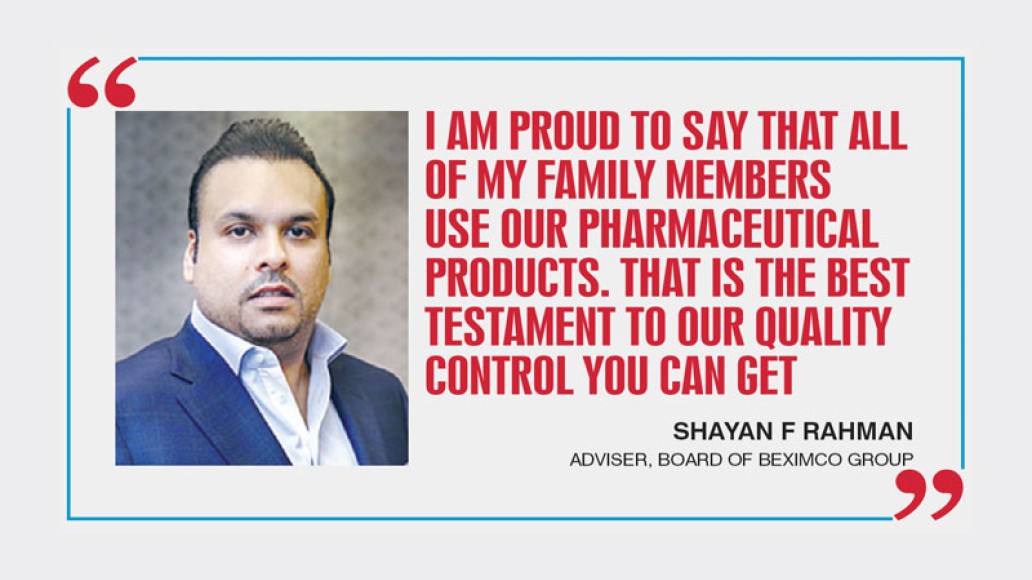
New York-based weekly news magazine TIME has run a story acclaiming Beximco Group for its role in diversifying the country’s economy away from its dependence on the textiles and readymade garment (RMG) industries to get Bangladesh elevated as a developing country.
The magazine in its January 20 edition ran the report that described how Bangladesh, after its likely reclassification as developing nation in 2024, will strike more than enough regional and bilateral deals to outweigh any losses to be caused by the gradual reduction in the tariff-free trade concessions that the country currently enjoys. “In 2024, the UN’s Committee for Development Policy (CDP) plans to reclassify Bangladesh as a developing country. While this will lead to a gradual reduction in the tariff-free trade concessions that the country currently enjoys, analysts believe that the change of status will enable Dhaka to strike more than enough regional and bilateral deals to outweigh any losses,” reads the report. The report also added: “The CDP is also urging Bangladesh — if it is to achieve its full potential — to diversify the country’s economy away from its dependence on the textiles and readymade garment (RMG) industries.” “One organisation that is well ahead of the game is the Beximco Group. Founded in the 1970s by the Rahman brothers, Beximco is now the largest private-sector employer in the country, with a global workforce of nearly 70,000,” said the report. “Starting out as commodity traders, Beximco Group subsequently moved into pharmaceuticals and from there has evolved into a heavily diversified conglomerate that is now active in real estate, media, textile and energy sectors.” With combined annual revenues of more than $1 billion, Beximco — Bangladesh Export Import Co — is also living proof that diversification works, and it is one of the leading companies in terms of market capitalisation on the Dhaka and Chittagong Stock Exchanges, and exports its products to 103 countries around the world, with its own retail outlets in both South Asia and Eastern Europe. The company’s history mirrors that of Bangladesh as a whole, while its plans for growth may well act as a guide to the country’s future, the report added. “Historically speaking, we have very much been a manufacturing-based organization,” Time quoted Shayan F Rahman, adviser to the board of Beximco Group, as saying. “My father and my uncle ran a jute mill even before Bangladesh existed,” he added, saying, “Once the country’s private sector began to take root, we moved into pharmaceuticals and then into textiles.” Listed in 1985, Beximco Pharmaceuticals Limited (BPL) is a generic drug manufacturer that has secured long-term contract agreements with Raffles Hospital, UNICEF, UNESCO and several leading pharmaceutical firms, including GlaxoSmithKline, he said. “It is the country’s largest exporter of pharmaceuticals, with a presence in 45 countries, and was the first Bangladeshi drug company to obtain a license to export into the United States. Plans are now being drawn up to expand its overseas manufacturing capacity into Saudi Arabia, Sri Lanka and Malaysia.” Beximco, meanwhile, is the largest vertically integrated textiles and RMG manufacturer in South Asia and counts among its clients American Eagle, River Island and Macy’s. There are two other listed companies that are part of the Beximco Group —Shinepukur Ceramics, the country’s biggest manufacturer and exporter of bone china and porcelain tableware, and the yarn manufacturer Beximco Synthetics. It has, Rahman said, been a key factor in the company’s success. “We have always given priority to four areas of development.” He explained: “The first of these is technology, and we have always gone for the best available. The only thing we value more than technology is our people, because the two go hand in hand and are vital for successful corporate governance.” For a family-owned company it is striking that, apart from Rahman himself, there are virtually no family members in key positions, a result of the rigid merit system he insists upon. Quality is another factor in Beximco’s success, particularly in the pharmaceutical arena. “When we first moved into pharmaceuticals, we noticed that a lot of our competitors wouldn’t use their own products because they didn’t entirely trust them,” Rahman said. “I am proud to say that all my family use ours. That is the best testament to our quality control you can get.” Along with a focus on building a strong brand name and customer base, these factors will doubtless be on show as the group diversifies even further. Energy security is high on Prime Minister Sheikh Hasina’s agenda, and in 2016 the company set up Beximco LPG, whose ground-breaking composite smart cylinders will be used to distribute liquefied petroleum gas (from its own tankers) to both home and factory. Earlier this year, it also set up a direct-to-home satellite TV service capable of delivering digital channels to some of the country’s remotest areas without the need for fiber-optic cabling.
